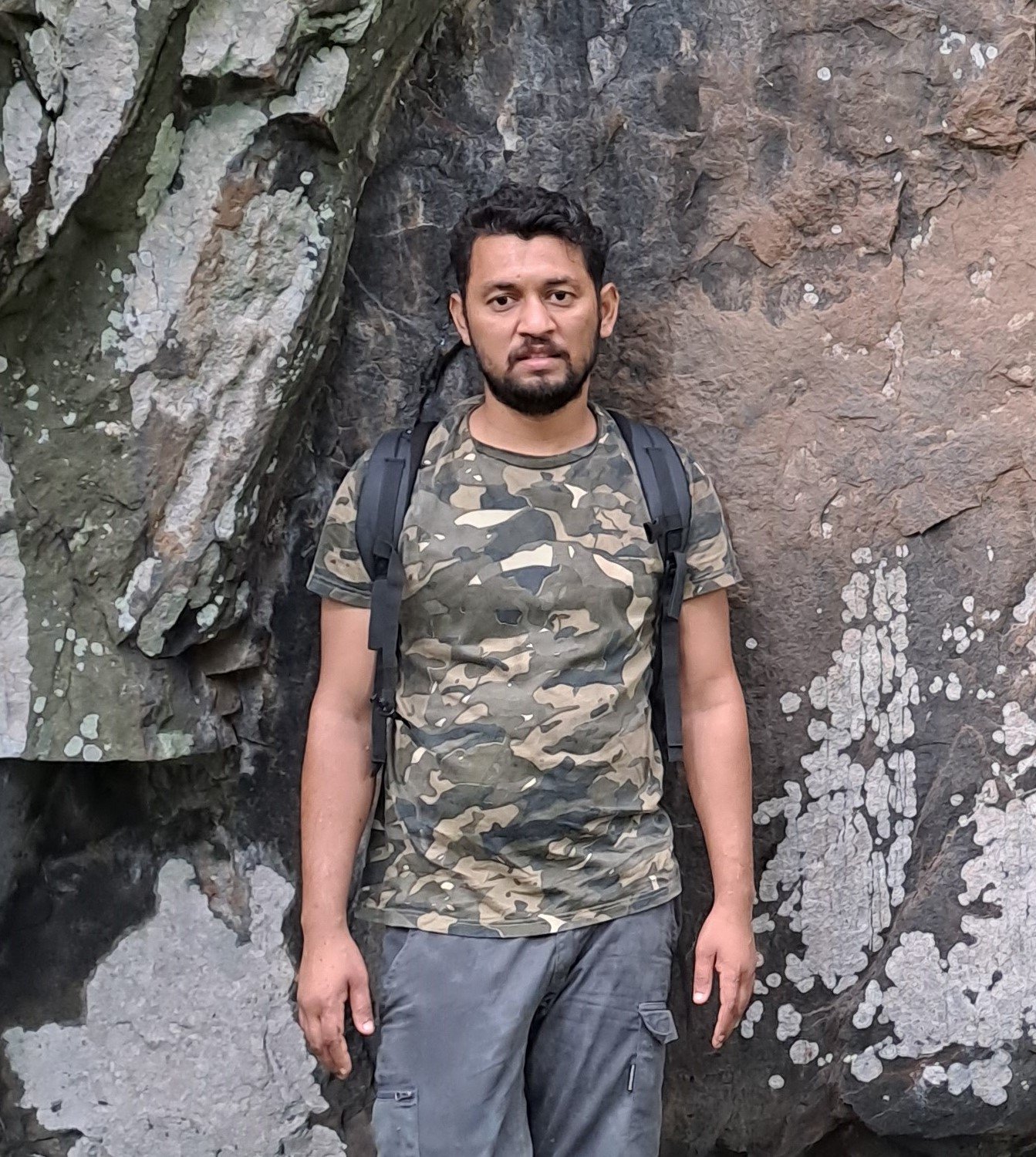Inlaks Ravi Sankaran Small Grantees 2024: Anasuya Borah and Hitesh Kumar
Anasuya Borah, Tanaya Rele, Farai Divan Patel and Hitesh Kumar are
the 2024 Inlaks Ravi Sankaran Small Grantees.
This week, meet Anasuya and Hitesh. Anasuya’s interest lies in
understanding agrarian ecologies through human and
non-human interactions, while Hitesh is looking to delve deeper
into the ecosystem role of vertebrate scavengers.
Read on to know more.
Anasuya Borah
Anasuya Borah is a political ecologist and social development practitioner who has worked in diverse landscapes, from the drylands of Central India, to the uplands of the Western Himalayas and the foothills of Eastern Himalayas. Her primary interest lies in understanding agrarian ecologies through relationships built between humans, and with nonhuman actors, on ideas of migration and encroachment.
Anasuya has completed her B.Sc in Botany from Hansraj College in Delhi University and has a Master’s degree from the School of Human Ecology at Ambedkar University, Delhi, where she was awarded the Academic Merit Scholarship. She co-runs Delhi-NCR based animal rescue organisation, Paws for a Cause.
Currently, as a freelance practitioner, she works with Green Hub India, mentoring and monitoring various projects. She was formerly CEO at Kumbaya, a social enterprise building a circular economy, while empowering marginalized women and people with disabilities through the art of stitching. Working at Samaj Pragati Sahayog, Anasuya built a robust understanding of rural livelihoods, politics and ecologies. Anasuya’s project, Monkey Matters, is housed at Canopy Collective. It aims to explore the web of relationships formed with and by macaques, to imagine strategic futures of coexistence in the urban-rural continuum of her native place in Central Assam. Through creative tools of art, photography and literature, it aims to foster a space of collective reflection to visualise the complexities of human-macaque relationships as well as to co-create solutions to ‘conflict’ narratives currently taking centre-stage in local discourses.
Hitesh Kumar
Like every wildlife enthusiast, Hitesh has been fascinated by the captivating visuals of animal behaviour in wildlife documentaries. As a resident of Mahendergarh, Haryana, he has witnessed massive exploitation of the Aravalli hills since childhood, where he has been birding, trekking, and bike-riding. He is grateful to Shri Rakesh Ahlawat, under whose guidance, he learnt to identify many birds and animal signs while walking along trails in these hills. He would often encounter roadkill of many lesser known species, from the small gerbil to the large Nilgai, and this led him to wonder about the survival of wildlife in the Aravalli landscape.
Following his Master’s degree in Zoology from Maharishi Dayanand University, Haryana, he was committed to the conservation of Haryana’s Aravalli hills and its biodiversity. Over the years, his close interactions with local communities in “Haryanvi” revealed positive and negative perceptions of scavengers at carcass disposal sites, also known as “Hadda rori”. Local stakeholders and "Gaushala" authorities mentioned high livestock mortality during the harsh winter season due to disease or malnutrition. “Hadda rori” are hotspots for supporting a diverse array of threatened scavenging vertebrates. Additionally, the vulture population decline and surge in feral dog numbers have intensified the negative interactions within the scavenging guilds.
These factors led Hitesh to pursue a PhD on the functional ecology and ecosystem services of vertebrate scavengers through his mentor at Sálim Ali Centre for Ornithology and Natural History. Using infra-red camera-traps and questionnaire surveys, he will be able to unravel the patterns of scavenger assemblage, assess their activity peaks and compare carcass survival probabilities between summer and winter. He believes that this pioneering study would open several research avenues for ecologists and wildlife scientists to delve into the world of "Scavenging Ecology" and its connection with ecosystem health.







